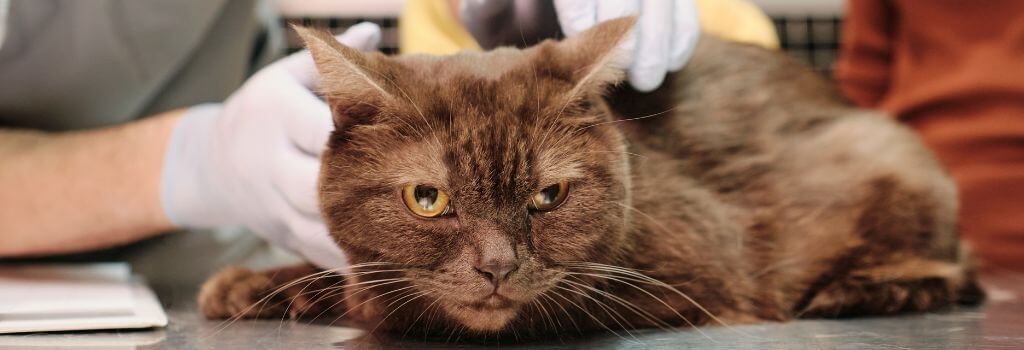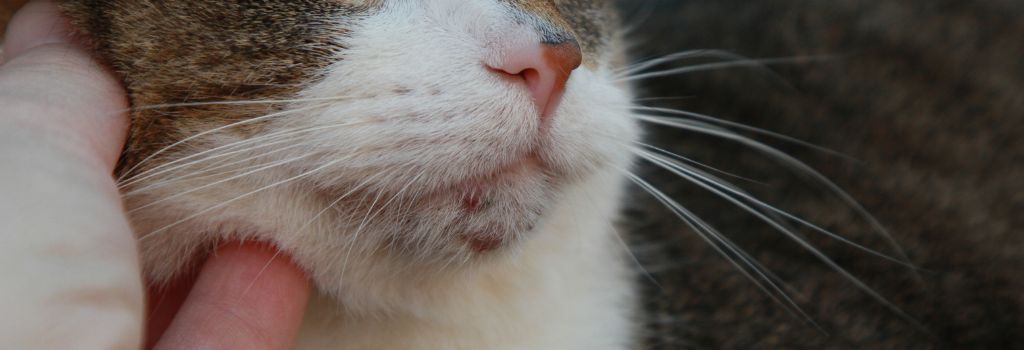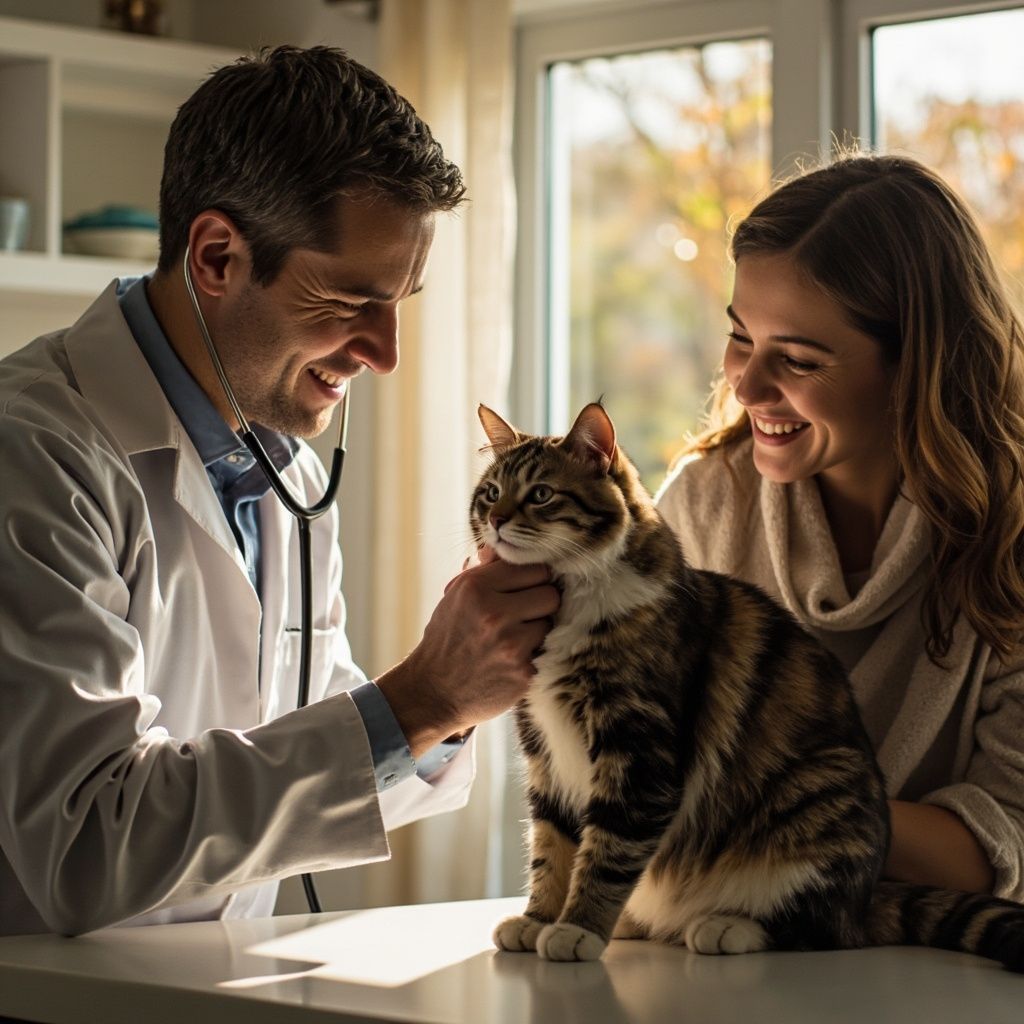Pet Parasite Awareness: Preventing Common Springtime Infestations
Spring’s arrival brings blooming flowers, chirping birds, and, unfortunately, a resurgence of unwelcome guests : pesky parasites. As veterinarians, we see firsthand the discomfort and health risks these tiny hitchhikers pose to our furry companions. While they might seem like a seasonal nuisance, the truth is year-round protection is crucial for keeping your pet happy and healthy. So, let’s shed some light on three of the most common springtime foes — fleas, ticks, and mosquitos — to equip you with the knowledge to keep them at bay.
Fleas: Tiny Terrorists with Big Bites
Imagine tiny vampires jumping onto your pet, feasting on their blood and leaving behind itchy, irritating bites. That’s the reality of fleas: tiny insects with a talent for making life miserable for both pets and humans. They thrive in warm weather, making spring a prime time for breeding. Female fleas lay eggs that hatch into larvae, eventually maturing into adults ready to hop onto unsuspecting hosts.
The dangers of fleas extend beyond just itching. They can transmit tapeworms to pets and cause allergic reactions that manifest as red, inflamed skin. Flea anemia is another concern for our feline friends. For humans, flea bites can be itchy and uncomfortable and in rare cases, even lead to allergic reactions.

Think your pet has fleas? The most common symptoms include:
- Constant scratching and biting: Is your pet itching excessively, especially around the tail base and back? That could be a sign of fleas.
- Tiny black specks: Look for flea dirt, which resembles pepper grains, on your pet’s fur or bedding.
- Red, inflamed skin: Flea bites can cause irritation and inflammation, especially on the belly, groin, and around the base of the tail.
The good news is that there are several ways to keep fleas at bay:
- Topical medications: These monthly applications kill fleas on contact and offer long-lasting protection.
- Oral medications: These chewable tablets provide convenient protection for pets who dislike topical treatments.
- Flea collars: While not as effective as other methods, collars can offer some protection.
- Environmental control: Regularly vacuuming, washing pet bedding, and treating the yard with pet-safe insecticides breaks the flea life cycle.
Ticks: Small Insects, Big Threat
Ticks might be smaller than fleas (at least before eating), but they pack a much bigger punch. These arachnids attach themselves to your pet’s skin and feed on their blood, potentially transmitting a range of serious diseases, including Lyme disease, ehrlichiosis, and Rocky Mountain spotted fever. The type of tick and the duration of its attachment determine the risk of disease transmission.
Worried about ticks? Here are some tips:
- Thorough tick checks: Regularly inspect your pet for ticks, especially after walks in wooded areas or tall grass. Pay close attention to areas like the ears, neck, armpits, and groin.
- Spot the telltale bump: Ticks appear as small, round bumps that grow larger as they feed.
- Symptoms of tick-borne diseases: Watch for fever, lethargy, loss of appetite, swollen lymph nodes, or lameness, which could indicate a tick-borne illness.

Prevention is key when it comes to ticks:
- Tick collars: These offer convenient protection, but their effectiveness varies depending on the type of tick and collar used.
- Topical medications: Several veterinary-approved topical medications repel and kill ticks.
- Oral medications: These provide another option for tick prevention, especially for pets who dislike topical treatments.
- Avoiding tick-infested areas: When possible, avoid walking your pet in areas with high tick populations.
Mosquitos: More Than Just Itchy Bites
While fleas and ticks are obvious threats, mosquitos pose a more insidious danger. These tiny insects transmit heartworm , a potentially fatal parasitic disease that affects the heart and lungs of dogs. Mosquitoes infected with heartworm larvae bite dogs, injecting the larvae into their bloodstream. These larvae mature into adult worms that take up residence in the heart and blood vessels, causing severe damage over time.
The buzz on heartworm:
Symptoms of heartworm disease: Coughing, lethargy, and difficulty breathing. Unfortunately, these symptoms usually don’t present until an infestation is severe.
Regular testing and prevention: As veterinarians, we recommend annual heartworm testing and year-round preventive medication, even for indoor pets, as mosquitos can enter homes.
Protecting your pet from mosquitoes requires a multi-faceted approach:
- Limit exposure to mosquitos: During peak mosquito season, be mindful of the times you take your pet outside. Avoid dawn and dusk hours when mosquitos are most active, and take walks in areas with low mosquito populations. Consider using mosquito netting on outdoor enclosures or installing screens on doors and windows to further minimize exposure.
- Utilize additional repellents: While heartworm prevention remains the primary defense, additional repellents can offer extra protection. Consult your veterinarian for pet-safe repellents like topical sprays or collars that repel mosquitos and other biting insects. Never use human repellents on your pet, as they can be toxic.
Spring Forward with Pet Parasite Awareness
As veterinarians, we see the devastating consequences of untreated parasite infections firsthand. Fleas can cause severe allergic reactions and discomfort, ticks can transmit life-threatening diseases, and mosquitos can lead to heartworm, a condition that requires extensive and expensive treatment. Thankfully, with a little awareness and proactive measures , you can keep your furry friend safe and healthy all year round.
Regularly check your pet for external parasites, especially after outdoor adventures. Early detection and treatment are key. We also encourage you to use topical medications, oral preventatives, and environmental control measures to create a multi-pronged defense against parasites.
Your veterinarian is your partner in pet health. They can create a personalized parasite prevention plan and address any concerns you might have. Above all else, remember that a healthy pet is a happy pet! By taking proactive steps to prevent parasite infestations, you can ensure your furry companion enjoys all the joys that spring brings without the worry of unwelcome hitchhikers.
If you have questions and you'd like to reach out to us, you can call us directly at (859) 625-5678. Don't forget to follow us on social media Facebook , Instagram.
Recent Posts










